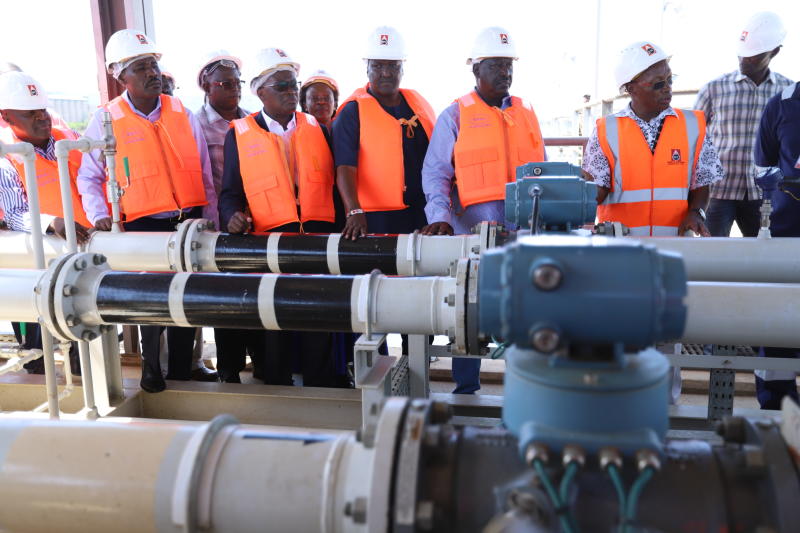 By Harold Odhiambo
By Harold Odhiambo
Business News
The deal seeks to transform Kisumu into a regional commercial hub by leveraging on Lake Victoria as a key transport corridor.
The government has breathed life in the war to regain control of East
Africa’s petroleum market by
funding the Kenya Pipeline jetty in Kisumu
with Sh1.7 billion.
This comes after Transport Cabinet Secretary James Macharia said all
fuel products be transported through the pipeline to Kisumu and
thereafter transported through the lake to the East Africa bloc.
The move signals a return to maritime trade over the lake and the
prospects of transforming Kisumu into a regional commercial hub. It has
also been tipped to leverage Lake Victoria as a key transport corridor.
KPC is banking on the facility to regain the East African petroleum
market share, part of which has been lost to Tanzania’s Central
Corridor.
Since its technical handing over ceremony in December 2018, activities at the jetty have been low with an official telling
Sunday Standard that business has struggled to pick up.
This has partly been attributed to delays by Uganda to complete its
docking facilities at Jinja and Port Victoria. Controversies surrounding
its construction has also clouded its success.
The jetty is expected to deliver petroleum products to Rwanda, Burundi, Uganda, Eastern DRC and parts of Tanzania.
Most suppliers have been relying on trucks that refuel at the KPC depot
located next to the Kisumu Airport to ferry petroleum products to
neighbouring countries.
However, all this is expected to change with the new directives as Kenya
seeks to regain its share in the export market, which it is competing
with Tanzania.
According to Macharia, the directives will come into effect on June 1
with the government also banking on its rail network system to transport
other transit goods to neighbouring countries.
Transport route
“Fuel products will be transported by pipeline to Kisumu and thereafter
by water through Lake Victoria to Port Bell or Jinja,” said Macharia.
And with the directives, hopes are high that the multi-billion jetty is
finally set to live up to its expectations to help revamp oil trade in
the region.
The construction of the jetty was shrouded in controversies over claims that the project was executed despite not being planned.
Should the oil trade pick up, the investment whose viability relies on
Uganda’s docking facilities that evacuates Kenya’s oil products is
expected to transform maritime trade.
In the last few months, a few tankers had started hauling oil products through the lake including
MV Uhuru, which has made several trips to Port Bell in Uganda after it was repaired last year.
The 600-tonne 12-crew member ship was refurbished at the Kisumu dock
and was reintroduced onto the lake in readiness for improved maritime
trade.
KPC will also be looking to take advantage of the developments to put
into use its 750,000-litre capacity boat, which has been reintroduced to
exploit the growing blue economy.
Apart from the hauler, Uganda also has two tankers with capacities to
carry four million litres and are among the vessels expected to boost
oil trade between Kenya and her neighbours.
Blue economy
With the developments, residents are upbeat that the blue economy that
once thrived when the old Kenya Railway line was operational will
return.
David Arao, an MCA whose ward covers part of the port, said he was optimistic the developments will spur trade for local people.
“It is a blessing for us and we are hoping that business will pick up,” said Arao.
On the flip side, the developments is set to hurt truck drivers
although it iss also set to reduce cases of harassment of Kenyan drivers
in Uganda due to Covid-19.
The use of the lake will render road use inconvenient and may lead to
the loss of some jobs, especially truck drivers and their turn boys.
Most of them have been refueling at the KPC depot, whose fuel capacity
stands at 39 million litres, with the use of lake transport tipped to
ensure that it’s fully exploited to serve the fuel demands by
neighbouring countries.
 By Harold Odhiambo
By Harold Odhiambo




No comments :
Post a Comment